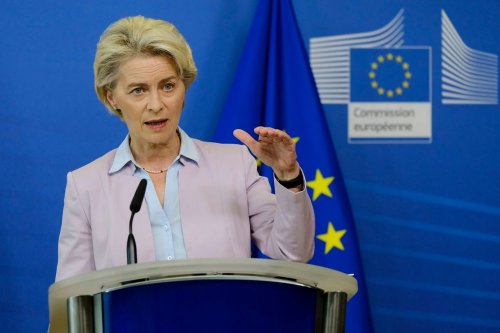The European Commission will help Member States, companies and workers prepare for a massive green and digital transition through a focus on the labor market and vocational training.
By 2030, the European Green Agreement should create 487,000 new jobs, of which almost 70% - for workers with vocational education (VET), according to Euratus
The article also stressed that the EU seeks to support people fleeing the war in Ukraine to integrate into the European labor market if they so wish. They will be helped to determine their qualifications, receive vocational education and training, and find training and employment.
Achieving climate neutrality requires enormous efforts by citizens, companies and entire industries. This means that many workers will need to jump from working in traditional fossil fuel industries to new green sectors and "green jobs" in all sectors where there is a shortage of skills.
Through close links with the labor market and elements of on-the-job training, VET can help workers relearn new green technologies and make the transition from work to work. The Commission supports the transformation of Member States' VET systems to make them suitable for the green transition.
One example is Erasmus + funding, which helps build centers of expertise. They bring together a wide range of local partners to develop "skills ecosystems", contributing to regional development. GREENOVET, the European Platform for Professional Skills for Green Innovation, EPLUG, the European Platform for Urban Greening and 3LOE, Professional Excellence in the Green Economy, are also being developed.
The Skills Pact is another way in which the Commission is helping companies and employees prepare for the transition to green and digital. By creating a forum for all partners to discuss current and future skills needs and build partnerships, the Pact acts as a matchmaker for the supply and demand of talent in Europe, ”the article reads.
To date, more than 600 organizations have pledged to provide the necessary skills to 6 million people.
Nicholas Schmidt, European Commissioner for Employment and Social Rights, and Margaritis Schinas, Vice-President of the Commission on European Lifestyles, explained that the 2030 target is for 60% of all adults in the EU to attend training each year. Member States can use EU funds to invest in retraining and retraining of the workforce in addition to primary education and training.
Funding from the European Social Fund Plus can help Member States modernize their VET systems and make them suitable for the green transition by updating programs and incorporating new skills needs.
The sixth annual European Skills Week is also celebrated in Europe from 16 to 20 May 2022.
We will remind, launched in Europe research and social initiatives to achieve sustainable development.
As EcoPoliticа reported earlier, the European Commission has selected 5 lighthouse projects for the New European Bauhaus.





